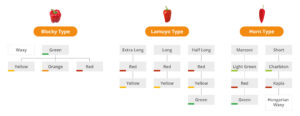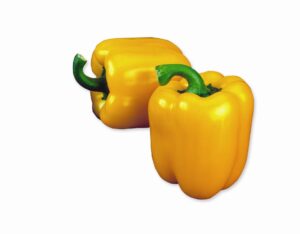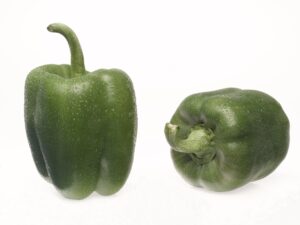Multicolored quality
Hazera’s peppers
Peppers offer a diverse world of colors, shapes and flavors, making them one of the most popular vegetable crops in the world.
Hazera’s pepper portfolio is the result of years of intensive research and development to create sweet pepper varieties of all types. Our advanced R&D is combined with an in-depth understanding of regional needs gained through local partners, enabling us to
offer varieties that are a perfectly suited for various regions, climates, countries and growing conditions. We are committed to the continuous improvement of our pepper portfolio, offering new varieties with better yields, disease resistances, fruit quality and more.
Our pepper portfolio:

- Blocky type
The square shaped Blocky pepper typically has fruit with similar length and width ans 3-4 lobs. It is the most widespread pepper type, and is very popular. Blocky peppers are available in a rainbow of colors: mainly green when young, as they mature they become red, yellow or orange. - Lamuyo type
Classic Lamuyo peppers have a length that is at least 1.5 times the width, and 3-4 lobs. These peppers are grown mainly in Mediterranean countries and in Central and South America. Red colored Lamuyo peppers are the most popular - Horn type
Horn pepper type has fruit with an elongated pointed shape. These peppers are popular in Turkey, Greece and in the Balkan countries. The three main types of Horn peppers come in different colors: the Hungarian Waxy type is white, the Charleston type is green and the Kapia type is red.
Fresh produce
Our pepper operations have expanded, together with our partners, to include the fresh produce supply chain and its requirements, all the way down to the final consumer. In line with the global fresh produce trend, our goal is for consumers to identify our pepper varieties in the markets as quality products.
Peppers for the food industry
Hazera offers pepper varieties with very uniform shapes and sizes, properties that make them especially fitting for the food industry, that requires uniform fruit for the production lines. As of today, there are several collaborations between Hazera and industrial food companies, primarily in the US, who find our varieties suitable for their needs.





